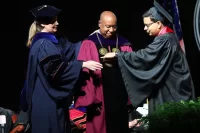
For Bates students curious about the business world, this year’s slate of Short Term courses includes a compelling new option: “Tuck Business Essentials,” taught by faculty from the Tuck School of Business at Dartmouth and led by Peter Friedman ’92, a Tuck graduate who will serve as the course’s practitioner-in-residence.
The course is one of five “Practitioner-Taught Courses, ” innovative and immersive offerings that bring Bates alumni and other industry leaders to campus to teach practical knowledge and industry-specific skills.
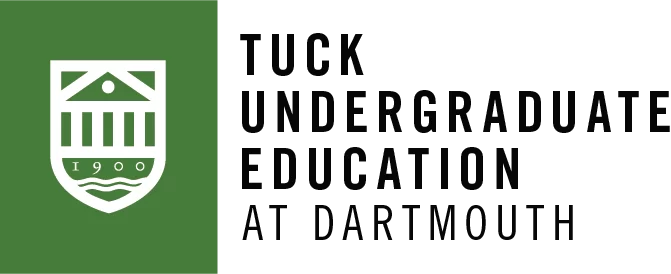
“Through PTCs, Bates students benefit from the expertise of accomplished professionals, many of whom are Bates alumni,” says Allen Delong, senior associate dean for the Center for Purposeful Work, which sponsors the PTC program.
“We are especially excited about the addition of Tuck Business Essentials, which will equip students with foundational business skills and real-world problem-solving experience.”
Bates students continue to express high interest in developing business-related skills, says Delong. According to recent Senior Survey results, 20 percent of graduating Bates students intend to pursue a business graduate degree at some point after graduation.
Applying a Liberal Arts Education
Peter Friedman decided to help lead Tuck Business Essentials, which has been funded anonymously by a family foundation, for one essential reason: “To increase the range of opportunities for Batesies and to expose them to new and different things.”
He explains that the goal of the course is to teach students how to use the skills they’re learning through their academic coursework — critical thinking, problem-solving, and interdisciplinary learning — in a business environment.
“A liberal arts education gives you the power to solve a problem using the tools in front of you, or to create new tools to solve a problem — across any discipline. Ultimately that’s what business is,” says Friedman, who earned an M.B.A from Tuck in 2003 and served on the school’s advisory board.
“Four years of Bates and 30-plus years since have taught me that business is just about using information, communication, the ability to work with individuals, and the right tools to solve problems.”

Joined by Tuck faculty, the new course will include a skill-building component, as students will learn key elements of marketing, finance, accounting, spreadsheet modeling, business communications, organizational behavior, and negotiations. The course will culminate in a dynamic business case study to simulate real-world decision-making.
Learning through case studies, Friedman explains, simply means “to problem-solve in a realistic environment” — while thinking on your feet, making strategic decisions under uncertainty, and engaging in dynamic discussions.
“You have a realistic problem that’s happened historically: this company, these people made these decisions. Given that information, what would be the next decision you would make? It’s very similar to what life and business is. You have incomplete information and an unknown situation, and you have to make the best decisions based on what you have at that time and move on.”
He has no doubt that his students will be up to the challenge: “The power of the liberal arts education is to solve a problem across any discipline. I’ve hired some Batesies in the past, and their ability to use their brains and think through problems and learn is second to none.”
The course is open to students in all majors; the only prerequisite is a drive to learn something new and connect their academic interests to opportunities for purposeful work, including the business world.
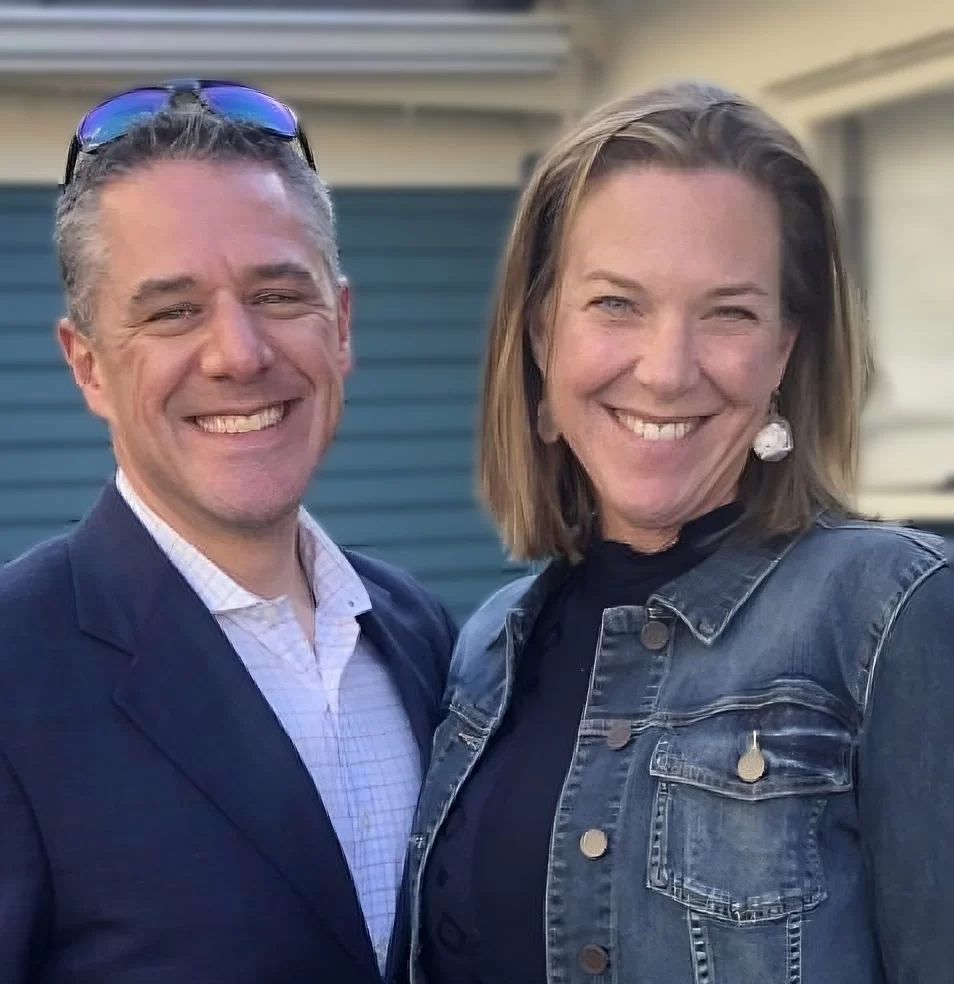
“I want to find the art history major or biology major or someone who has an appetite to learn,” Friedman says. “Their major is what they are engaged in at the moment because it has captured their interest. But that doesn’t mean that that’s the end of or the only field they will address.”
Friedman graduated from Bates with honors in geology, then entered the aviation industry as an airline pilot before pivoting into a business career. He is a managing partner and founder of Five by Five Capital, a private equity firm investing in a wide range of industries.
Friedman and his wife, Kitty Northrop Friedman ’95, a Bates trustee emerita, are longtime active contributors to the Bates community. Their son, Ned ’24, graduated with a politics degree and was a co-chief of Bates Emergency Medical Services; their daughter, Lindley ’26, is a biology major.
A Growing Slate of Practitioner-Taught Courses
Since 2014, PTCs have introduced students to 18 career fields and nearly 70 specializations, from arts administration to virtual reality design. Delong says that they are a great fit for the college’s four-week Short Term, which runs April 28 to May 21 this year.
Short Term, which follows the regular fall and winter semesters, “has always been a defining part of the Bates experience,” says Delong, “an opportunity for a deep dive into a single course, experiential learning, and exploring new academic and career interests.”
In addition to Tuck Business Essentials, the 2025 Practitioner-Taught Courses also include:
- Practicum in Planetary Health with Jennifer Rasmussen ’07, a registered nurse and education fellow with the Planetary Health Alliance, introduces students to the field that explores the connections between human health and the natural systems that sustain it.
- Is That True? Practicum in Media Literacy with Elizabeth Hartfield ’08, a CNN vice president, to give students the skills to navigate and report the proliferation of both misinformation and disinformation.
- Practicum in Music & Health with Kate Beever, a Portland-based music psychotherapist, exploring the therapeutic uses of music within healthcare settings for clients of all ages.
- Spies, Secret Agents, and the Presidency with Elly Rostoum ’07, a former U.S. intelligence analyst, examines the role of the intelligence community within the U.S. national establishment.
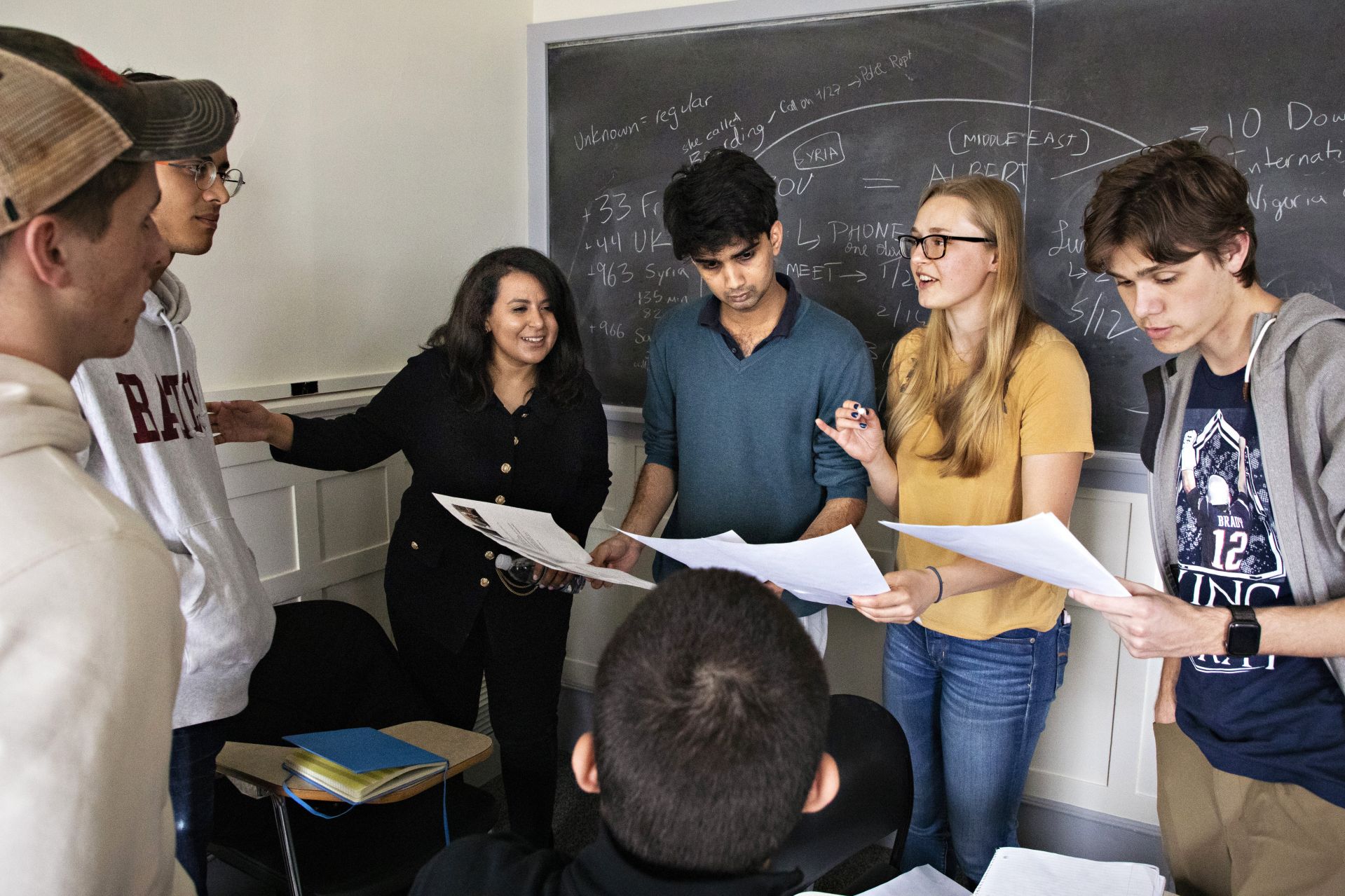
In Hathorn Hall in 2019, Elly Rostoum ’07 (third from left) teaches her Practitioner-Taught Course that explores, from her expert perspective, the role of the intelligence community within the U.S. national establishment.
Bates debuted the first Practitioner-Taught Courses in 2014 as part of the college’s Purposeful Work initiative, whose groundbreaking, developmental approach to career support helps students explore, test, and deepen their potential career interests throughout their four years.
Typically, PTCs include guest experts, case studies, and fieldwork, plus ready access to a new network of professionals and solid experiences for students to add to their career exploration portfolios.
Beyond skill development, “students also gain hands-on insights into professional expectations — fast-paced work, deadlines, and team responsibilities,” says Marianne Nolan Cowan ’92, senior associate director for exploration and curricular design with the Center for Purposeful Work.
The courses provide students with opportunities to explore fields that align with career pathways, engage in hands-on learning, and develop professional networks that will support them after graduation.
Short Term 2025: And There’s More!
This year’s Short Term presents a menu of more than 90 courses, many reflecting the unique proposition of Bates’ popular spring semester: time and space to explore a wide range of topics.
Four courses involve extensive travel abroad, led by Bates professors, to the Dominican Republic, Hungary and Poland, Rome, and China, where students will engage in hands-on ethnographic research, analyze theater and film’s role in political change, explore ancient civilizations through art and architecture, and study traditional medicine through clinical practice.
On campus, like the PTCs, a set of innovative “Biological Skills” courses are designed to give students specific, marketable training that they can highlight in applications for internships or jobs.
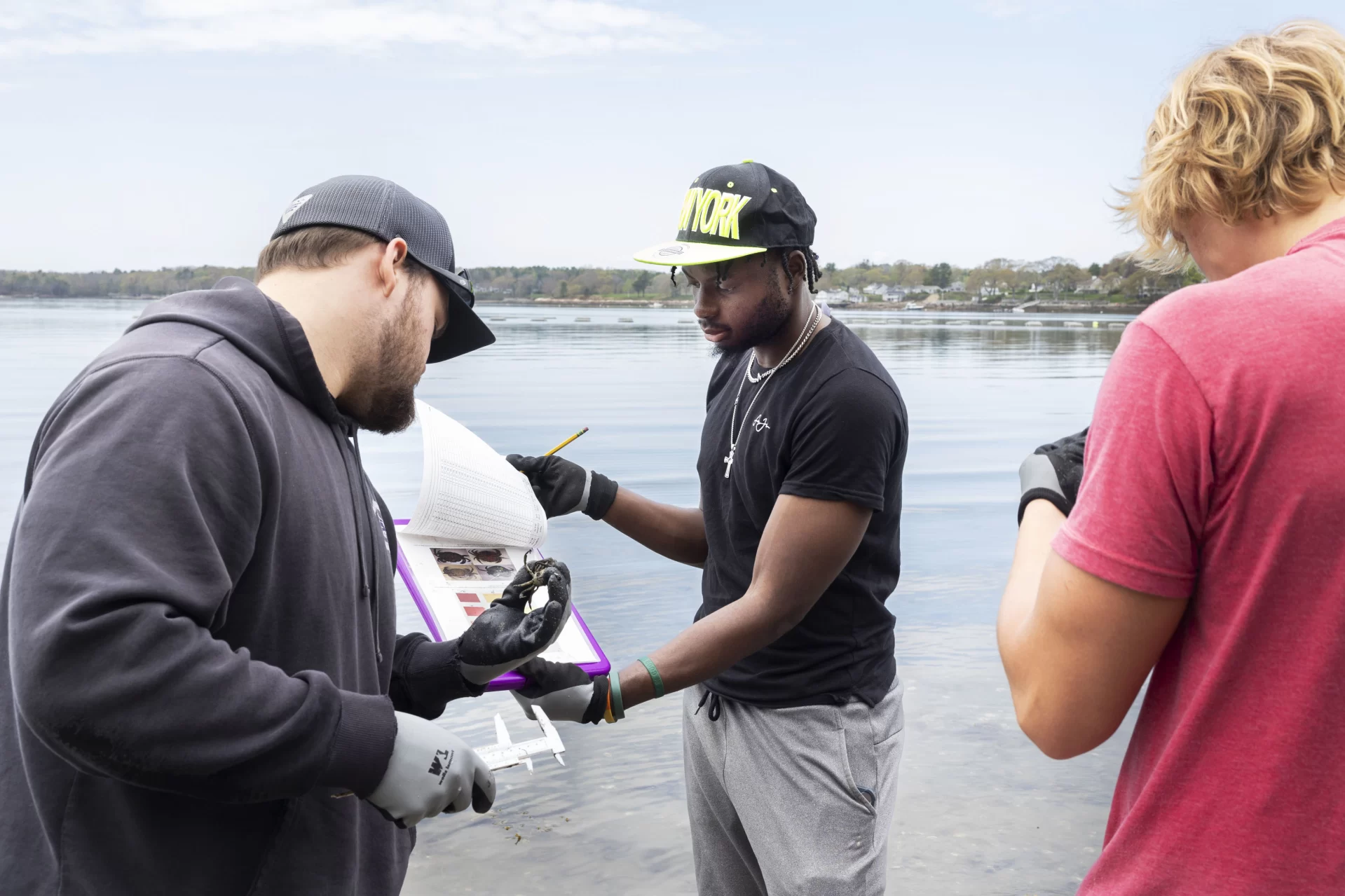
This year’s Biological Skills courses teach skills in observing, counting, and analyzing ecological populations and communities; data acquisition and image analysis using the college’s laser scanning confocal microscope; herbarium and digital taxonomy skills through extensive fieldwork near campus; and modern ornithology techniques.
Most Short Term courses are within academic programs and departments, while some are extracurricular but still provide academic credit. For example, the annual Emergency Medical Technician course, which includes donor-supported funding to defray costs to students, teaches the skills needed to become a certified EMT and be part of the valuable and successful Bates EMS program.
Another set of innovative Short Term courses, under the “Innovative Pedagogy” umbrella, gives Bates students a rare opportunity in U.S. higher education: the chance to shape the curriculum by working directly with faculty to rework an existing course or create a new one.
Students and faculty in this year’s seven Innovative Pedagogy courses will build or rework courses in disciplines like digital history, including Bates’ own history, plus historical revolutions, sociolinguistics, philosophy, teacher education, and feminist studies.




